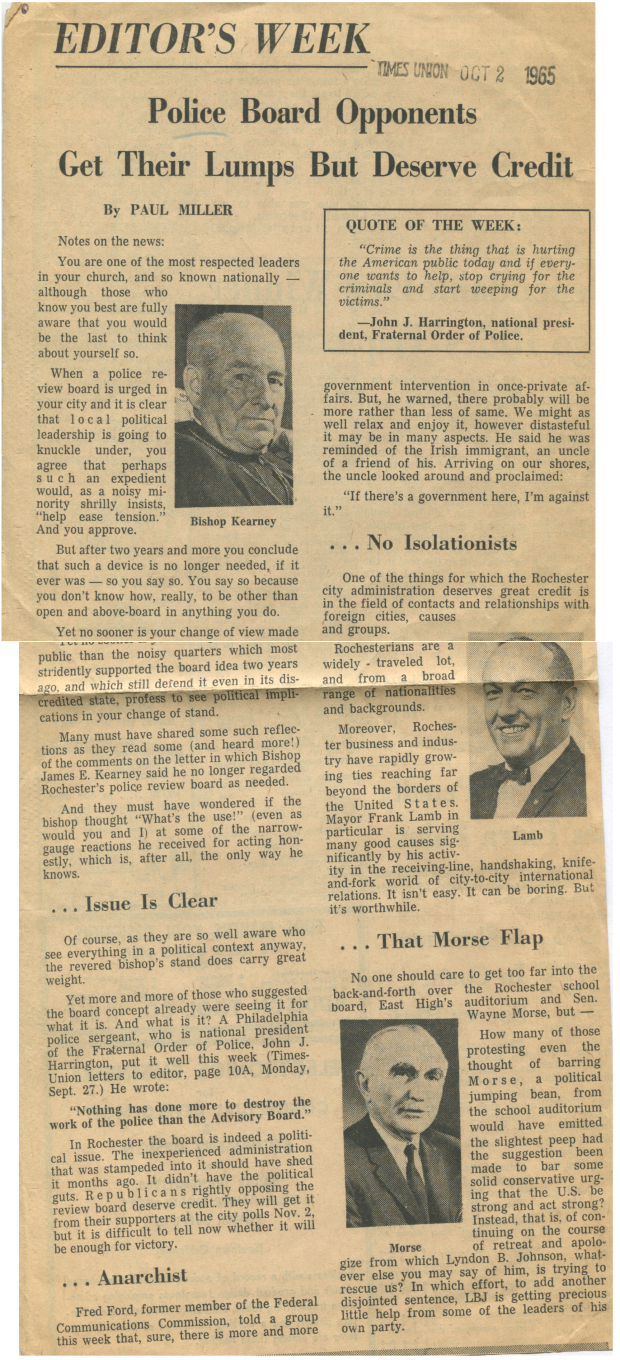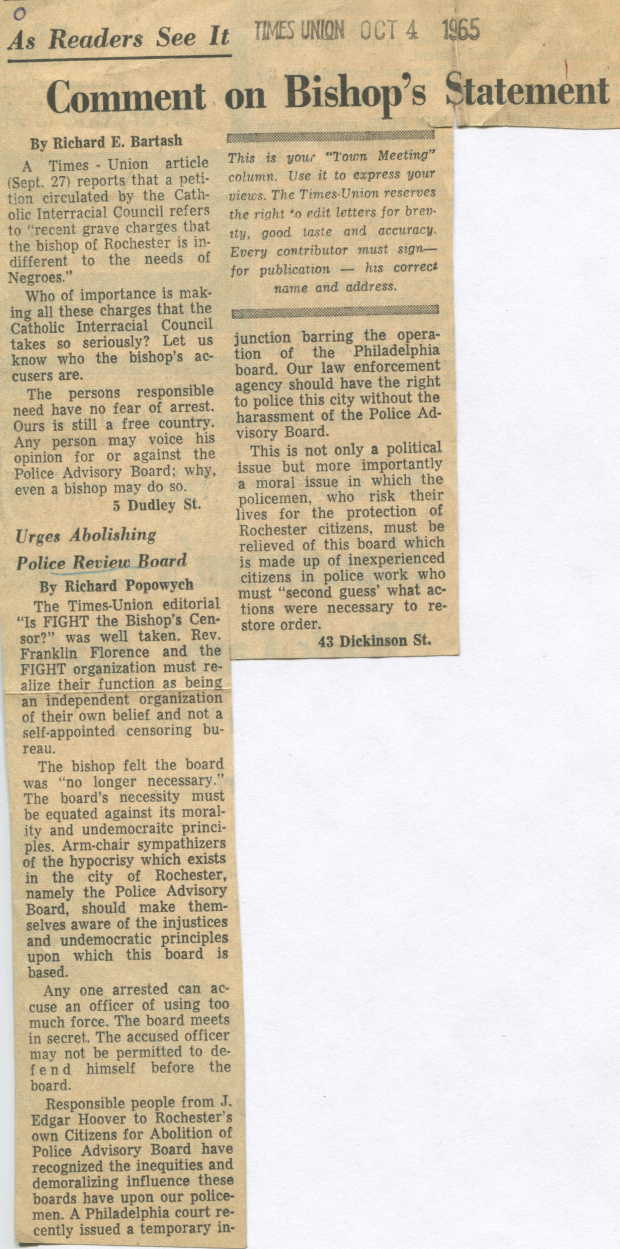Against the Police Advisory Board, letters, editorial, and article, Times-Union, October 1965
Primary tabs
The year 1965 had by far the most column space with regards to the Police Advisory Board in both the Democrat & Chronicle and the Times-Union newspapers. For 1965, articles critical of the PAB from the Times-Union have been combined into single Rochester Indymedia articles divided by month. This is October 1965. The clippings can be found at the Local History Department of the Monroe County Library Downtown Branch.
While the Police Advisory Board became law on March 26, 1963 to address complaints against officers who used "excessive and unnecessary force" against civilians, the Locust Club police union did everything in its power to thwart it from actually accomplishing anything. Two injunctions were slapped on it by the court preventing it from conducting independent investigations and forwarding recommendations to the chief of police--it's primary functions. By the mid-1960s, new appointments to the board were needed to meet quorum in order for it to do its work. But neither Democrats nor Republicans appointed anyone to the board after it was found constitutional by the courts in 1969. It was then defunded and abolished in 1970 by the new Republican Party-lead Rochester city government.
"Police Board Opponents Get Their Lumps But Deserve Credit," is a Times-Union "Editor's Week" segment written by Paul Miller and published on October 2, 1965. More commentary from the Times-Union calling for the abolition of the PAB. This time, the piece starts off with the revelation that Bishop James E. Kearney, who was for the board two years earlier, is now against it. They go on to quote the national president of the Fraternal Order of Police, John J. Harrington: "Nothing has done more to destroy the work of police than the Advisory Board."
The letters to the editor below, "Comment on Bishop's Statement" and "Urges Abolishing Police Review Board," were written by Richard E. Bartash and Richard Popowych, respectively. Both authors are from the city, and the letters were published in the Times-Union on October 4, 1965. Bartash's letter brushes off criticism of Bishop Kearney from the Catholic Interracial Council regarding his reversal on support for the PAB. Bartash demands to know who the accusers are and reminds readers that "Ours is still a free country." The second letter, by Popowych, was much more critical. He started by calling FIGHT a "self-appointed censoring bureau" with regards to the bishop's reversal. He then goes on to say that the board was founded on "injustices and undemocratic principles." He then says that J. Edgar Hoover and the Citizens for Abolition of the Police Advisory Board are "responsible people" and that the board has a "demoralizing" effect on police. I'll let you read the rest of this drivel.
"Police Boards Criticized," has no author. The article was published in the Times-Union newspaper on October 23, 1965. The article recounts the speaking engagement of John J. Harrington, the national president of the Fraternal Order of Police. Harrington makes no bones about it when it comes to police brutality: "The cry of 'police brutality' is not a valid cry but is Communist inspired. Conspi-racist Harrington claimed that police advisory boards were "forced on people and the city fathers by minority pressure groups." Finally, regarding the PAB, Goodman A. Sarachan, of the State Investigation Commission, charged that the board "knows absolutely nothing about law enforcement."












